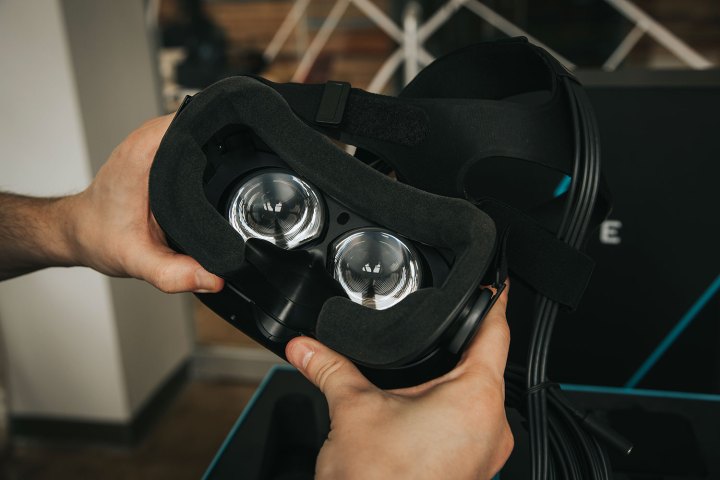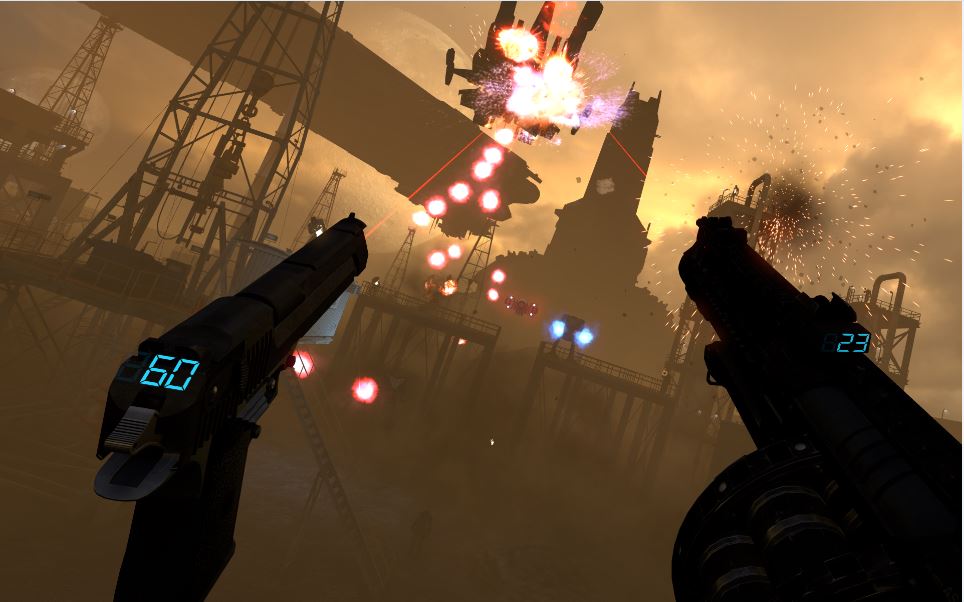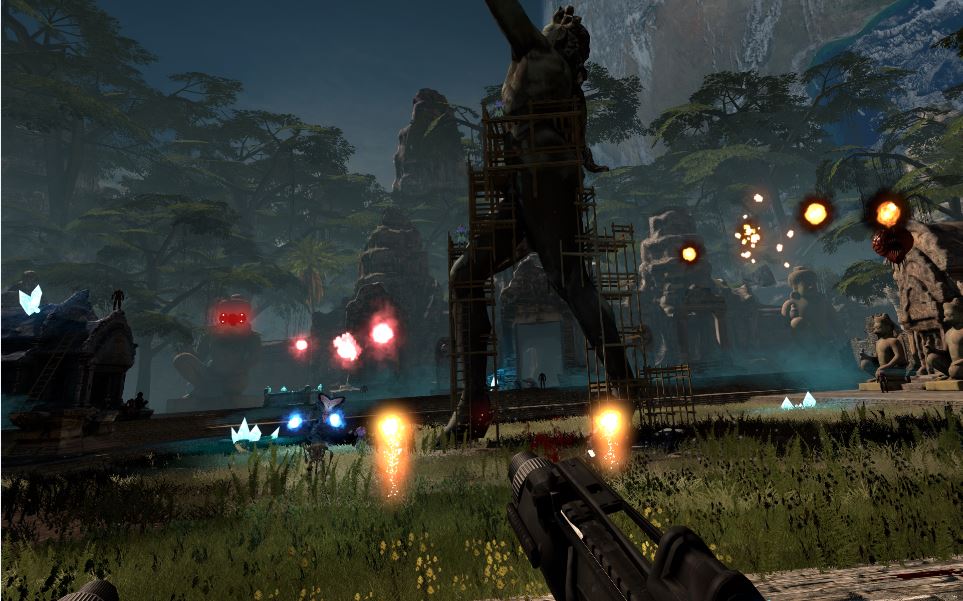
But as I found out when I sat down with HTC VP of virtual reality Dan O’Brien, and Vive VP of VR Content Joel Breton, taking a hands-off approach to exclusivity doesn’t mean there’s no work to be done.
“It’s a pioneering era. Everyone is trying to learn at the same time.” Breton says the development teams hold each other to high standards. “They can be brutal to each other,” he laughed, “but they don’t get offended, they’re just trying to help.”
Breton says it’s not just between developers, either. HTC and Valve both take on the challenge of working with teams to ensure a top-quality product. “They can even bring in a test build for preview sessions,” O’Brien shared, “It’s a really unique position to be in. It would be like HTC teaching other manufacturers how to make a phone.”
Consistency helps developers
Fallout 4 has to be one of the biggest titles making its way to VR headsets in the last year, and Breton noted that “Bethesda has been working on VR for several years – before the Vive was even out. They like to be a leader, and they’re already pushing the boundaries.”
It would be like HTC teaching other manufacturers how to make a phone.
A big part of that is locomotion, an area where developers are working hard to decide on best practices. Poor movement can make users sick, but it’s essential for games like Fallout and Elite: Dangerous. It’s also a point where HTC has an advantage over Oculus.
“Every Vive that ships is exactly the same – two trackers, two controllers, one headset. It’s a fully-featured, unfragmented device with a focus on full presence, fully immersive VR. We’ve got the platform for them to do that on.” O’Brien explains. “There’s no divide in the hardware community. Users and developers have complete freedom to choose their experiences.”
We’ve found in our own testing that properly-built room-scale VR tends to eliminate most the dizziness and disassociation users experience. It also means developers are going to be drawn to a platform where they won’t have to develop for multiple input devices.
Exclusivity and openness go head-to-head
Those following the VR world closely know there were two VR titles that took the spotlight at E3 — and not just because they look entertaining.
Giant Cop, a game previously announced for Vive, was declared an Oculus timed exclusive, to be released for the Touch controllers. This total 180-degree turn towards exclusivity seemingly came out of nowhere.
Meanwhile, Croteam announced Serious Sam VR for SteamVR. A developer from the team took to Reddit and said “They tried to buy Serious Sam VR as well. It wasn’t easy, but we turned down a shitton of money, as we believe that truly good games will sell by themselves and make profit in the long run regardless. And also because we hate exclusives as much as you do.”
There are over 240 Vive apps on Steam, compared to 45 games on the Oculus Store.
That statement makes it easy to guess what might’ve caused Giant Cop’s sudden change of platform. The statement by Croteam added fuel to the long-burning Oculus exclusive controversy, which has generated debate among gamers since the headset’s release.
HTC and Valve, however, don’t seem concerned. When I asked about the games, Breton and O’Brien both were aware of the controversy, but weren’t interested in what was happening on the other side of the aisle. It helps that while Vive is fighting for hardware agnosticism, Oculus is fighting for the opposite.
The open road
“We’re not proposing anyone do exclusives,” Breton explains. “We don’t want to slow adoption. We want to make sure developers are healthy, it’s better for the whole industry.”
O’Brien’s jovial tone reassures me there are no hurt feelings here, only positivity. “We’re going to continue encouraging companies to come to the Vive. If there are agreements that limit that, we’ll welcome them when they’re able to come, with the same full support our other developers enjoy.”
And indeed, the Vive and SteamVR has proven a much more popular platform for developers. There are over 240 Vive apps on Steam, compared to 45 games on the Oculus Store, plus 16 non-game experiences and apps.
“They know Steam is a platform for developers they can make money on. It’s a great place to distribute content. The market will react as it’s going to react.” If the responses to VR exclusivity are any indication, it may already have.






